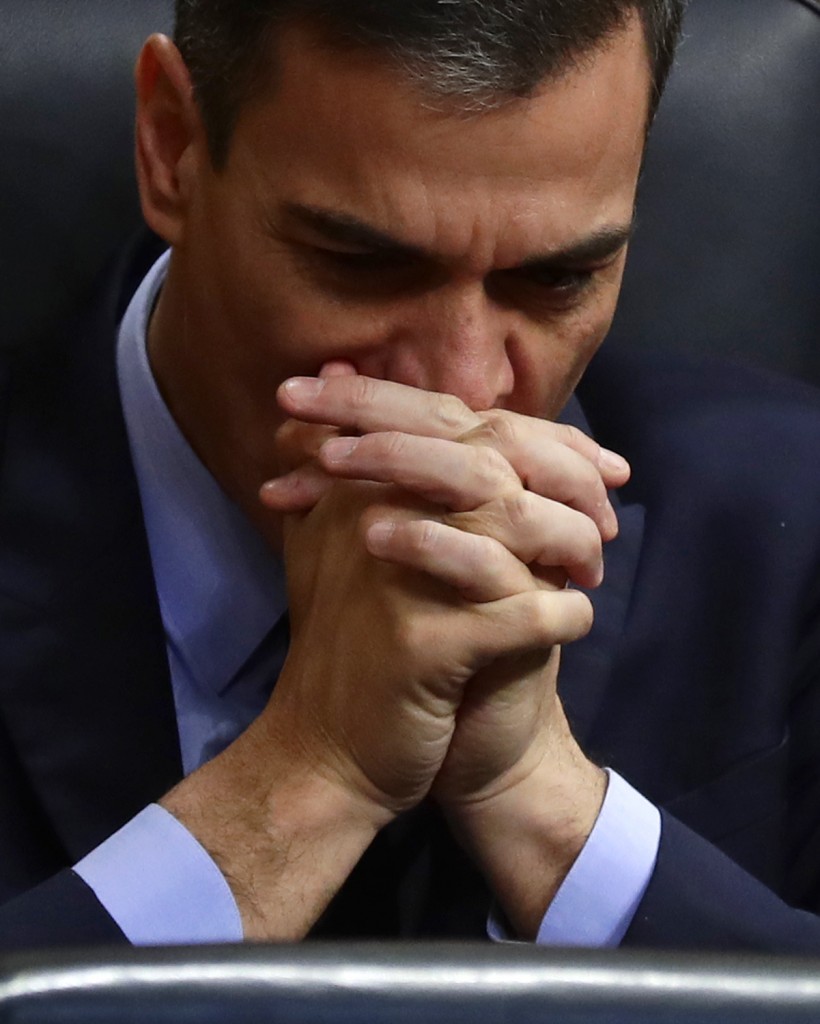Commentary
Why the Spanish Socialists are celebrating the failure of the investiture vote
Only one of the two parties actually wanted a Socialists-Podemos government to happen. Everything the PSoE has done has been geared toward making a one-party government or, barring this, to make the investiture fall apart and blame it on Podemos.

Why did Pedro Sanchez lose the investiture vote as the new Prime Minister of Spain? There are four reasons. The first is, in fact, a person: Ivan Redondo. Sanchez’s spin doctor is the head of his communications strategies, and thus also of his policies.
From the start, Sanchez’s strategy was to govern alone in a one-party government, thanks to the abstention of one of the parliamentary groups. (He even tried to negotiate an abstention of the People’s Party and Ciudadanos groups.)
Everything the PSoE has done since the elections has been geared toward making a one-party government or, barring this, to make the investiture fall apart, blame it on Podemos and go back to the polls, stealing some more of the latter’s votes. They couldn’t untangle the negotiations from this communications strategy.
For the Socialists, the war for votes against their leftist competitors was worth more than setting up a new government. Under the guidance of Redondo, Sanchez initially refused to accept a coalition government, then said that Iglesias should not be in it. Once the latter withdrew, Sanchez made proposals that would have relegated Podemos to an almost token role, with only a few minor ministries and without power over spending. Such proposals were meant to be rejected.
All of Sanchez’s political moves were in fact communications gambits, meant to achieve a calculated rhetorical and discursive effect. In the Spanish system, like in a growing number of other political settings, the communications dimension is incorporating and subsuming the political one.
The second reason is labor, as in the Ministry of Labor. The breakdown in negotiations between Unidas Podemos (UP) and the PSoE took place because of the Socialist refusal to let the UP have this ministry, on the pretext that Podemos is “a disturbing presence” for the Spanish employers’ association.
This not-very-noble reason makes quite clear just how little the Socialists are concerned about the “social” aspect. What has been made to look like a squabble over ministers’ seats is actually a disagreement over substance: UP wanted this ministry in order to abolish the People’s Party’s reform of the labor market and raise the minimum wage to €1,200 per month.
These are two things the Socialists don’t want, probably after talking with the employees’ association. It’s important to have a clear perspective about what some are claiming, namely that labor is no longer central to contemporary political dynamics: in this case, the birth of a government was scuppered in order to keep the left from being in charge of labor policies. The elites always know very well what the key points of control are.
The third reason is the two-party system. All of Sanchez’s political actions can be summarized as an attempt to turn back the clock of Spanish politics to the time when it used to be almost entirely monopolized by the PSoE and the PP. From this point of view, legitimizing Podemos as a force in government would have been counterproductive.
The fourth reason is Europe. The Socialists have repeatedly said that the UP’s program (still) contains disturbing elements for the European institutions. One can imagine that they were on the receiving end of considerable pressure from this side.
Sanchez never wanted this government to happen. Podemos, on the other hand, was strenuously, almost desperately, fighting for it. Not only for selfless reasons (“for the good of Spain and of the popular classes”), but also because Iglesias and his crew believe that being in government is the best place to revive their party.
In recent years, the UP has built very solid relationships with organized civil society, so much so that the two main Spanish trade unions supported the idea of the coalition government from the beginning. However, its presence on the social level is not enough. Podemos cannot remain at the level of being seen as a “protest” vote, or as a mere collective mobilization tool. It needs to show what it can do as a force of reliable and effective governance at the national level.
The whole of Iglesias’s strategy over the past two years has been built around this goal. The failure of Sanchez’s investiture is therefore a major defeat. In the case of snap elections, Podemos will not only face the hostility of the media close to the PSoE (such as El Pais and the powerful Prisa Group), but will also most likely be facing a double threat: a possible break with Izquierda Unida (which is currently favorable to offering Sanchez external support), and the participation in the elections of the party started by Inigo Errejon, Iglesias’s former number two. Errejon joining the contest would be a fulfilment of the wildest dreams of those in the PSoE, who believe this would be decisive to defeat Podemos for good and have to deal only with a more moderate and more flexible left.
Thus, not everyone is equally to blame for the failure of the new Sanchez government. Only one of the two parties actually wanted the government to happen. In the meantime, the right is gloating. Once again, the European Socialists are failing to learn from their mistakes, only to try to cover them up under the banner of a mobilization “against the fascists.”
Originally published at https://ilmanifesto.it/spagna-senza-governo-il-fallimento-in-quattro-parole/ on 2019-07-28
